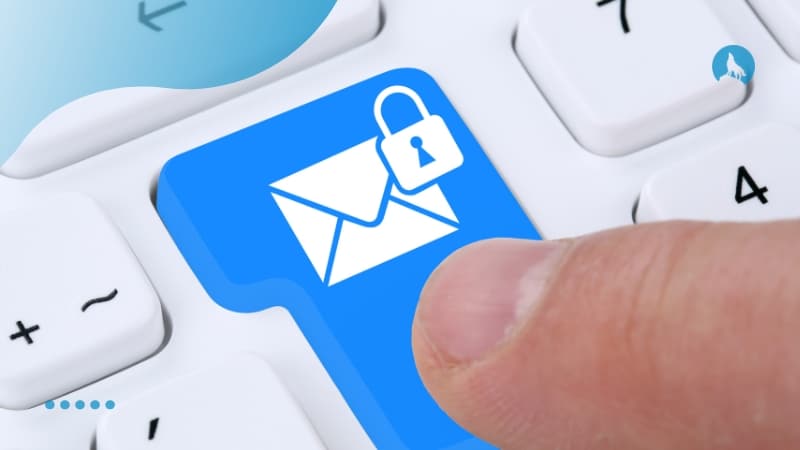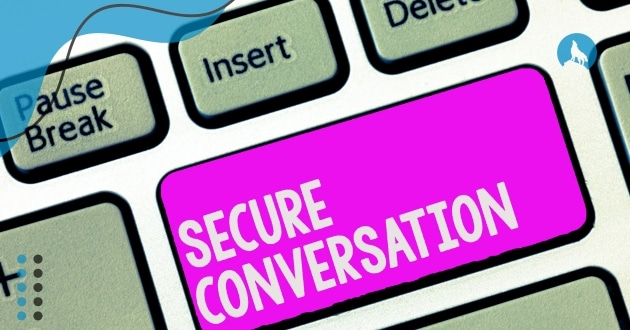In the digital age, the importance of communication security cannot be overstated. Secure messaging apps encrypted for privacy are now more critical than ever as users seek to protect their personal and professional conversations from unauthorized access.
As we navigate through a world where digital interactions are commonplace, it’s clear that privacy is no longer a luxury but a necessity. Secure messaging apps encrypted to ensure end-to-end protection have become the go-to choice for individuals and organizations alike.
Moreover, the growing reliance on digital communication tools has led to an increased awareness of the risks associated with unencrypted messages. Consequently, secure messaging apps encrypted with advanced cryptographic protocols have become the standard for secure communication.
The Importance of Encryption in Messaging Apps

Encryption is a fundamental aspect of secure communication. It ensures that only the intended recipients can read the messages, protecting them from prying eyes. The following apps have been designed with this principle at their core, offering robust security features to protect users’ data.
1. Signal (Secure messaging apps encrypted)
Signal is widely regarded as the gold standard in secure messaging. It offers end-to-end encryption by default, meaning that only the sender and recipient can access the messages. Signal’s commitment to privacy is evident in its open-source code, allowing for transparency and regular audits by the security community.
2. Telegram
Telegram provides a range of features, including the option for end-to-end encryption through its “Secret Chats” function. While not all conversations on Telegram are encrypted by default, users can choose this option for added security. The platform also offers self-destructing messages, adding another layer of privacy.
3. Threema
Threema is a paid app that prioritizes security and anonymity. It doesn’t require users to link a phone number or email address to their account, which helps maintain privacy. Threema also employs end-to-end encryption for all communications, ensuring that messages, files, and calls are secure.
4. Wire (Secure messaging apps encrypted)
Wire is another strong contender in the realm of secure messaging apps. It provides end-to-end encryption for messages, files, and video calls. Wire is popular among businesses for its collaboration features and its compliance with strict European data protection regulations.
5. Element.io (Riot)
Element.io, formerly known as Riot, is built on the Matrix protocol, offering decentralized communication with strong encryption. It is a favorite among tech-savvy users and organizations seeking secure and flexible messaging solutions.
6. SimpleX Chat
SimpleX Chat offers a unique approach to privacy by not storing any user data on servers. Instead, it uses peer-to-peer connections to ensure that messages are only shared between the sender and the recipient. This design makes it one of the most secure messaging apps available.
7. Brosix (Secure messaging apps encrypted)
Brosix is a team communication tool that provides secure messaging features tailored for businesses. It ensures that all communications are encrypted, making it a reliable choice for companies that prioritize data protection.
8. WhatsApp
WhatsApp, owned by Meta, is one of the most popular messaging apps globally. It offers end-to-end encryption for all messages and calls, making it a secure option for everyday communication. However, concerns about data sharing with its parent company have led some users to explore alternative encrypted messaging apps.
9. Viber
Viber also provides end-to-end encryption for messages, calls, and shared media. It offers additional features such as hidden chats and self-destructing messages to enhance user privacy.
10. Dust (Secure messaging apps encrypted)
Dust is designed for those who are particularly concerned about privacy. It offers end-to-end encryption and automatically deletes messages after 24 hours. The app also allows users to “unsend” messages, removing them from both the sender’s and recipient’s devices.
Frequently Asked Questions About Secure Messaging Apps Encrypted
1. What are secure messaging apps encrypted?
Secure messaging apps encrypted are communication platforms that use encryption to protect the content of messages, ensuring that only the intended recipients can access and read them. Encryption scrambles the message data, making it unreadable to anyone who intercepts it without the correct decryption key.
2. Why should I use encrypted messaging apps?
Using encrypted messaging apps is crucial for maintaining the privacy and security of your communications. These apps protect your conversations from unauthorized access, including potential hackers, government surveillance, and even the app providers themselves, depending on the level of encryption.
3. Are all secure messaging apps encrypted by default?
Not all secure messaging apps offer end-to-end encryption by default. While some apps like Signal provide encryption for all communications automatically, others like Telegram require users to enable features like “Secret Chats” for full encryption. It’s essential to understand the security features of the app you are using.
4. How do encrypted messaging apps protect my data?
Encrypted messaging apps protect your data by converting it into a code that only the recipient can decrypt. This process, known as end-to-end encryption, ensures that the message remains secure from the moment it leaves your device until it reaches the recipient’s device, preventing third parties from accessing the content.
5. Can the app developers read my messages on encrypted messaging apps?
In most cases, with end-to-end encryption, even the app developers cannot read your messages. This is because the encryption keys are stored on the users’ devices, not on the app’s servers. However, it’s important to verify the specific encryption practices of each app to ensure your privacy.
6. What should I look for when choosing a secure messaging app?
When choosing a secure messaging app encrypted for privacy, look for features such as end-to-end encryption, open-source code for transparency, strong user authentication methods, and regular security updates. Additionally, consider the app’s privacy policy and any potential data-sharing practices.
7. Are encrypted messaging apps completely secure?
While encrypted messaging apps significantly enhance the security of your communications, no system is entirely foolproof. Users must also practice good security hygiene, such as keeping their apps updated, using strong passwords, and being cautious of phishing attempts, to ensure the highest level of protection.
Conclusion: Secure messaging apps encrypted
In today’s digital landscape, the importance of using secure messaging apps encrypted for privacy cannot be overstated. These apps play a critical role in protecting our personal and professional communications from unauthorized access.
The choice of which secure messaging app to use depends on various factors, including the level of encryption offered, the app’s user interface, and additional security features like self-destructing messages or anonymity options. From Signal and Telegram to Threema and Wire, each app offers unique benefits tailored to different user needs. Whether you’re a privacy-conscious individual or a business looking to protect sensitive information, there is an encrypted messaging app that suits your requirements.
As encryption technology continues to evolve, the future of secure messaging apps encrypted looks promising, with ongoing advancements aimed at enhancing user privacy. However, it’s important for users to stay informed about the apps they choose, understand the encryption methods employed, and follow best practices to maximize their security.



